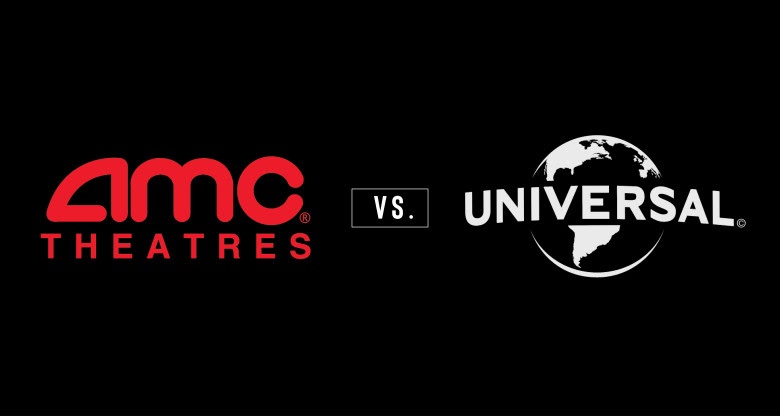Image from Indiwire.com
When “Trolls: World Tour”, the sequel to the popular 2016 animated film, was announced, nobody expected much to come of it. It would attract families to theaters, sell a decent amount of merchandise, and play out more or less like any other animated feature from a major film studio. There was never a point where anybody could have pictured this film, nothing more than an hour-and-a-half kid-friendly cartoon musical, to leave that much of an impact on the entirety of the film industry.
All that changed in the months leading up to the film’s originally scheduled theatrical release date. “Trolls: World Tour” had initially been planned to come out in April, but when the COVID-19 pandemic forced movie theaters across the globe to shut down until further notice, that plan was no longer viable. The film’s distributor, Universal Pictures, could have perhaps pushed the release date back like every other film originally set to be released in the coming months. For “Trolls: World Tour” however, Universal decided to take a different approach. The studio announced that it would release the film simultaneously in theaters (or the very few that were still open) and through video on demand.
In some respects, the move was more beneficial to Universal than expected. With so many families in need of entertainment while under quarantine, a new animated film was just what they needed, and its $20 two-day rental fee would be significantly less than what families would pay at a theater. Because this release strategy would forgo theaters, Universal would receive more revenue from rentals since they would not have to give up a percentage of ticket sales.
This did not sit well with movie theater chains, especially the major ones like AMC and Regal, and the situation only got worse when Universal announced how much “Trolls: World Tour” in its first three weeks.
On Tuesday, April 28th, Universal CEO Jeff Shell announced that “Trolls: World Tour” had earned over $100 million in rental sales during the first three weeks it was available. While this was a smaller number than what the original “Trolls” had earned in a similar amount of time when it was released theatrically in 2016, the amount of revenue going directly to the studio was more or less the same for both films. Pleased with the success of this unusual release strategy, Shell announced that Universal would consider releasing some of their future films in theaters and on demand at the same time.
This resulted in a cry of outrage from movie theater companies, few of which were willing to accept what would be a noticeable cut to their own profits. The most noteworthy response came from AMC Theaters, the largest movie theater chain in the world, which announced that it would no longer show any Universal films at its locations. Unless the company changes its mind, moviegoers will have to look elsewhere to see any of the upcoming Universal Films like “F9” and “Minions: The Rise of Gru”. Meanwhile, the second largest theater chain, Regal Theaters, announced that while it would not immediately follow in AMC’s footsteps, it would remain dedicated to ensuring the respect of the theatrical window, issuing a warning for any studios considering simultaneous theater/VOD releases.
It’s not hard to see why theaters are so determined to hold on to whatever sources of revenue they have. With the rise of streaming platforms throughout the 2010’s and onward, the average American has become less likely to go out to theaters on a regular basis, with the typical moviegoer only visiting the theater only three to five times a year. Theaters have had to resort to a variety of measures to ensure people keep attending their locations, from luxury seating to pass subscriptions that would allow customers to go to as many movies as they want for one single monthly price. There’s only so much these chains can do though, and for them, any cut to their revenue is something to be concerned about.
This is why the success of “Trolls: World Tour” has theaters making a big fuss. If more films follow this same strategy of being released both in theaters and on demand at the same time, then that’s less money going to an industry that’s already been struggling to keep their business afloat in the wake of streaming’s ever-growing presence. Warner Brothers has already announced that it will attempt to repeat Universal’s success by releasing its own animated feature, “Scoob!”, on demand later in May, and it wouldn’t be unreasonable for other studios to contemplate similar plans for their own animated films.
However, these are only mid-budget features that are getting this treatment. So far, no major blockbusters have been announced for simultaneous theater/VOD release, meaning that studios do not yet have the confidence that the likes of “Black Widow” and “Wonder Woman 1984” can be profitable through immediate digital release and therefore must be released theatrically. It’s also worth noting that the success of “Trolls: World Tour” has less to do with shifting viewing preferences and more to do with the need for entertainment while people are quarantined, or at least that’s what the National Association of Theater Owners argues.
What does this mean? While the situation surrounding “Trolls: World Tour” is unique, it should definitely not be a sign that the theatrical experience is on its way out. Still, with movie theaters struggling and likely to still do so after the quarantine comes to an end, it’s worth keeping an eye on, if only to see how this conflict between studios and theaters continues to play out.




